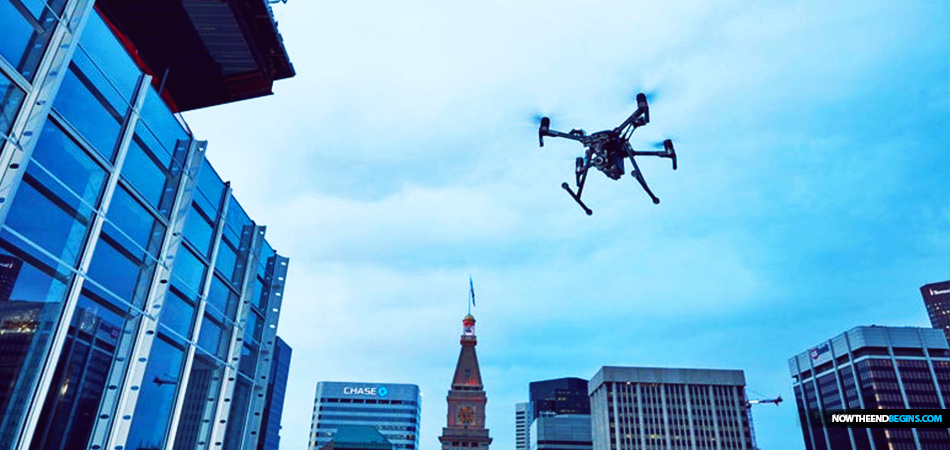
Now equipped with remote sensing technology to monitor crops, infrared scanners to scrutinize power lines, cameras and tracking systems, drones, much like smartphones, are the stuff of espionage dreams.
How's this for irony? Labs in Communist China create the coronavirus, labs in China release the coronavirus, coronavirus spreads around the world and lands in America, now Chinese drones are surveilling US cities, spying on American citizens, and the captured data gets sent back to...China? The past month has made me feel less like a writer and journalist, and more like and end times novelist.
If you were looking to wage war with someone without looking like you were waging war, this would be an excellent way to do it. Just sayin'. See how easy it really was to set up a police state? Remember how we all said we would never let it happen? Oh look, more kitten videos on YouTube! Yep, that's it. Nighty, night, freedom. Instead of watching those kitten videos, why not stream that 1984 classic 'Red Dawn', you might find that more appropriate for the times we find ourselves in.
Drone Maker D.J.I. May Be Sending Data to China, U.S. Officials Say
FROM THE NY TIMES: D.J.I., the popular drone maker, stands as a symbol of China’s growing technology prowess. Its propeller-powered machines dominate global markets and buzz regularly over beaches, cityscapes at sunset and increasingly, power plants and government installations.
Now D.J.I. is fighting a claim by one United States government office that its commercial drones and software may be sending sensitive information about American infrastructure back to China, in the latest clash over the power of data in the growing technological rivalry between the two countries. It also shows how consumer technology companies have become increasingly central to debates about national security.
The company, formally named
Da Jiang Innovations Science and Technology Company, put out a statement this month contesting the allegations made in a dispatch from United States customs officials. The
memo, from the Los Angeles office of the Immigration and Customs Enforcement bureau, was dated in August but had begun to circulate online more recently.
It said officials had “moderate confidence” that the D.J.I.’s commercial drones and software are “providing U.S. critical infrastructure and law enforcement data to the Chinese government.” It cited what it called a reliable source, who it did not identify, in the drone industry “with first and secondhand access.”
In a statement, D.J.I. said the report was “based on clearly false and misleading claims. The allegations in the bulletin are so profoundly wrong as a factual matter that ICE should consider withdrawing it, or at least correcting its unsupportable assertions,” the company said.
The I.C.E. memo focused on the drones used by companies and institutions, not the drones
flown by hobbyists in the United States and elsewhere. D.J.I. dominates the
overall drone market, with a nearly two-thirds share in the United States and Canada, according to Skylogic Research, a drone research firm. To
grow beyond hobbyists, the company has been targeting commercial customers, like utilities, law enforcement and property developers.
The accusations point to a broadening debate in both the United States and China over how to secure vast data reserves that are being vacuumed up by commercial technology companies. Likened by metaphor-minded tech types to gold or oil, data has become a hugely valuable way to suss out market trends and target ads.
Now equipped with remote sensing technology to monitor crops, infrared scanners to scrutinize power lines, cameras and tracking systems, drones — much like smartphones — are the stuff of espionage dreams. Customers often have little knowledge of where their data might end up, experts said, while D.J.I. and others give themselves considerable leeway in the fine print of their user agreements to transfer data across borders.
American intelligence and political circles are beginning to consider how companies and governments manage the data they collect. Given that major Chinese companies must maintain close ties to the government, new China tech players like D.J.I. have raised particular concerns.
This summer, the United States Army issued guidance calling for forces to stop using D.J.I. drones because of unspecified security vulnerabilities.
READ MORE
No comments:
Post a Comment